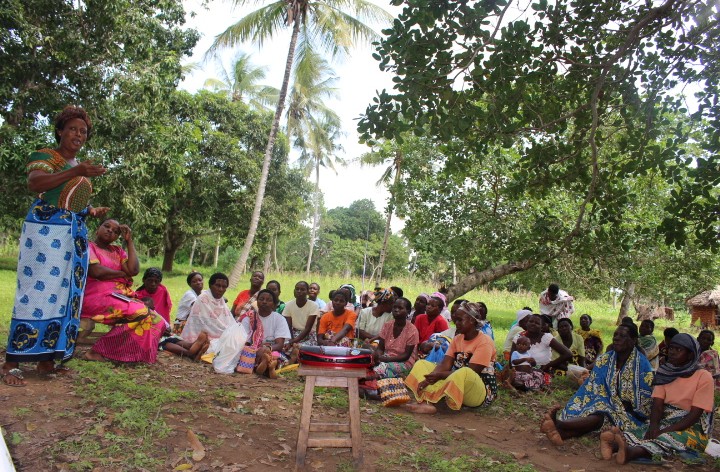Can information placed in the right hands help the rural poor obtain better services and policies from their governments? If so, where and how can information help, and what are its limitations? IFPRI gathered together a distinguished group of scholars working on this topic for a full-day workshop in April to shed some light on these questions and discuss how information might be better harnessed to improve the lives of the poor. Insights from across different sectors, country contexts, and levels of government drew out several lessons.
First, this is an important question, in large part given frequent government failures in this area. High quality rural governance has the potential to significantly improve the productivity and welfare of the poor—about 68 percent of whom live in rural areas worldwide. Government has at least two important roles: Providing services and supporting economic activity through good economic governance. Important rural services include infrastructure and agricultural and social programs. Good economic governance entails supporting formal and informal institutions that promote economic activity and transactions by protecting property rights and enforcing contracts.
Nonetheless, rural governments in developing countries often fail in these roles. Service providers often lack full information on the preferences and needs of service users, and lack incentives to exert effort and refrain from corruption. Weak local institutions may fail to support economic activity, foster distrust in government, or even reduce demands for government services. For example, Jordan Kyle and Danielle Resnick described how demand for irrigation and extension services in rural Nepal depended on perceptions of government’s ability to deliver—i.e., the infrastructural power of the state.
Second, there is a broad array of institutional and technological innovations that might improve information flows and thus increase the quality of rural governance. Providing information to government may help overcome information asymmetries between service users and service providers. Information in the hands of citizens may enable them to better monitor and thus reward or sanction service providers. Recent institutional innovations include decentralization (administrative, fiscal, political, or other), changes in the roles of the public vs. private sectors, government transparency initiatives, and efforts to increase citizens’ involvement in government decision-making, among others. Recent technological innovations include more widespread use of Internet, cell phones, and cameras, for example.
Information, conveyed in a variety of ways, has beneficial impacts. Neha Kumar and colleagues showed that merely belonging to a self-help group in India can make women more aware of and thus more likely to participate in entitlement schemes. My own research with David Evans and Brian Holtemeyer in Tanzania showed that a local community-managed conditional cash transfer program improves trust in leaders most when there are ample community meetings preceding program implementation. Stuti Khemani and Phil Keefer showed that access to community radio leads citizens to throw their support behind policymakers offering public goods in the areas of health and education (as opposed to favoring policymakers offering private transfers). Catia Batista and colleague showed that when international migrants exposed to better quality political institutions abroad return home and talk with others, this leads to greater demand for political accountability by those in their social networks. Simrin Makhija and colleagues showed that governments can improve agricultural extension service delivery by employing video-based agricultural extension services with highly localized content. And Paul Christian and colleagues discussed the value of combining information on water requirements with actual water usage data to reduce collective action failures.
Third and most importantly, information is no panacea. Guy Grossman and colleagues found that a new information communication technology platform in Uganda allowing citizens to send free and anonymous messages to local government officials did not improve service delivery outcomes. Mark Buntaine and Brigham Daniels found that sending citizens targeted and timely information about when and how they can participate in the planning of a community-based development project did not improve knowledge, participation, perceptions of government efficacy. And Daniel Hidalgo and colleagues demonstrated that information about the local government’s record in combating the spread of Zika and other mosquito-borne illnesses had little to no effect on voting for the mayor’s reelection.
These null findings highlight the need to consider more carefully how to make information credible, meaningful, timely, and actionable. First, researchers need to consider how new sources of information interact with existing information. New information may challenge or confirm existing beliefs, but it may also—and less predictably—spread confusion or suspicion, potentially backfiring or leading to unexpected results. For example, as Mark Buntaine and Brigham Daniels identified, notifying individuals about opportunities to participate in community development project meetings actually made salient their exclusion from many decisions. So, knowing what individuals believe (and how strongly) matters. Second, researchers need to better understand what information, and in what form, is indeed relevant and meaningful to study participants. If this is not the case, even the most excellent institutional reforms and technological innovations will achieve little. Finally, there is evidence that, in some cases, making information costly to obtain or provide is actually more effective than making it free: cost can signal the value of the information.
Overall, information is a very important part of but is not itself the solution to poor public service delivery or governance more broadly. Governments should ideally use institutional and technological innovations to increase the flow of information that is in high demand but not otherwise available due to market, governance, civil society, or other failures. And they should do so while carefully taking existing information and preferences into account.
Katrina Kosec is a Senior Research Fellow in IFPRI’s Development Strategy and Governance Division.







